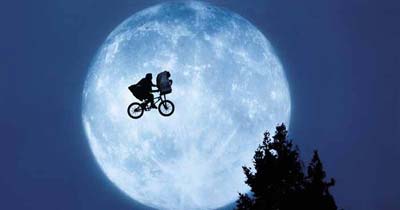“When I see your heavens, the works of your fingers, the moon and stars that you set in place – What is man that you are mindful of him, and a son of man that you care for him?” – Psalm 8:4-5

Extraterrestrials have been a staple of our pop culture, urban legend, and serious scientific inquiry just about since the early 20th century and the advent of Wellsian fantasy. There is something about these little green men from another world that capture our imagination and conscience. Aliens in fiction can be a way to view the human race from a radically different angle, or be a conduit for a specific aspect of human behavior. Moreover, they can act as members of a completely foreign world through elaborate science-fiction that acts to a similar end as fantasy. Some of our most iconic fictional characters are beings from other planets. Think of E.T., the Iron Giant, or Superman and what they teach us about life on earth. Extraterrestrials in literature and film always astound us and make us rethink crucial aspects of our nature.
However, the existence of intelligent life beyond earth is a legitimate topic of discussion that’s worth looking into in the years ahead as we continue to peer into the stars for answers about our universe. Plus, it’s simply one of those topics that is fun to speculate about. I’ve always enjoyed the idea of humans interacting with beings like us in some ways but radically different in others – That’s part of the reason science fiction and comic books fascinate me. That beings said, it’s always a bit annoying when I hear certain Christians, and even some Catholics say things like “Nah, there’s no aliens. Because, you know, the Bible.” A simplification, I know, but it does describe a Protestant creationist worldview common in the United States that has leaked into the Catholic Church without a whole lot of concern. It is concerning, though, mainly because it adds fuel to the fire of new atheism, which is always claiming that Christians are anti-science and not curious about anything. Arguments against God become a lot easier to make when you can say, “There is no God, because… dinosaurs.” (I’ve mentioned briefly here before the Simon Pegg and Nick Frost movie Paul which operates basically on the same premise with an alien and a caricatured fundamentalist antagonist.)
The problem with creationism is that it actually sets limits on God’s creation, rather than affirming that the truths of science cannot contradict the truths of revelation and letting scientists genuinely inquire about the created world. That’s why the Church is not opposed to belief in the evolution of the natural world through natural selection and even of the evolution of the human body – though it maintains that the first humans were granted rational souls. Just so, there is no reason, from a Catholic perspective, to outright deny the existence of other organic, intelligent beings with rational souls out in the vastness of the universe. If one was to express doubt at their existence, it would have to be on scientific rather than theological grounds. To express doubt of extraterrestrial life because of the “Goldilocks Zone” and what not is understandable, but to reject the possibility because it doesn’t fit into a narrow theological worldview is a grand presumption.
On the other hand, a genuinely Catholic view of revelation does not encourage its believers to treat the Bible like a science text-book and give in to the false premises of fundamentalism. In the words of very famous Renaissance Catholic named Galileo: “The Scriptures tell us how to go to Heaven, not how the Heavens go.” No doubt Galileo had more of a Catholic mind than his persecutors.
Okay, rant over.
With all that said, it bears pointing out that certain beliefs surrounding aliens are indeed contrary to the Faith in that they can be used as a cop-out for materialism. I’ll call this set of beliefs “alienolatry” – mostly because I like to make up words. Alienolatry is the whole system that seeks to explain away everything religious or mythological in human history a being done by aliens. Pyramids? Aliens. Gods and goddesses of myth? Aliens. Biblical prophecy? Aliens. Jesus Christ? Definitely an alien! ( I mean, that goes without saying) The problem with this line of thinking that it ends up becoming just as silly as creationism. Instead of cutting out the realities of the natural world, it strips out the soul of human life and replaces it with an idolatry of beings that might be “more evolved” than we. As Catholics, we do not worship God as “a being” but as “being itself”. That means that if aliens did come to earth tomorrow, they would be neither deserving of worship nor even the veneration given to the saints.
The real error of alienolatry lies in connecting the existence of other corporeal beings with religious mania that wipes out the truths of revelation. Now, it’s true that if extraterrestrial beings do exist, they could possess technology, mental faculties, or abilities that make them far superior to we humans. However, they’d still be, like us “a little less than an angel” (Ps. 8:6) with rational souls and fleshy bodies. I don’t know enough about abduction stories and conspiracy theories to make a venture about alien activity already involved in human history. However, if we do come face to face some day with extraterrestrial life whom we can understand and wish to understand us, it will be a great day for both worlds. There may be blood and curses as there always are when cultures meet, but there might come a day when we can sit down and talk about the things that matter – Goodness, Truth and Beauty. You know, the universal things – all in a very big universe.


